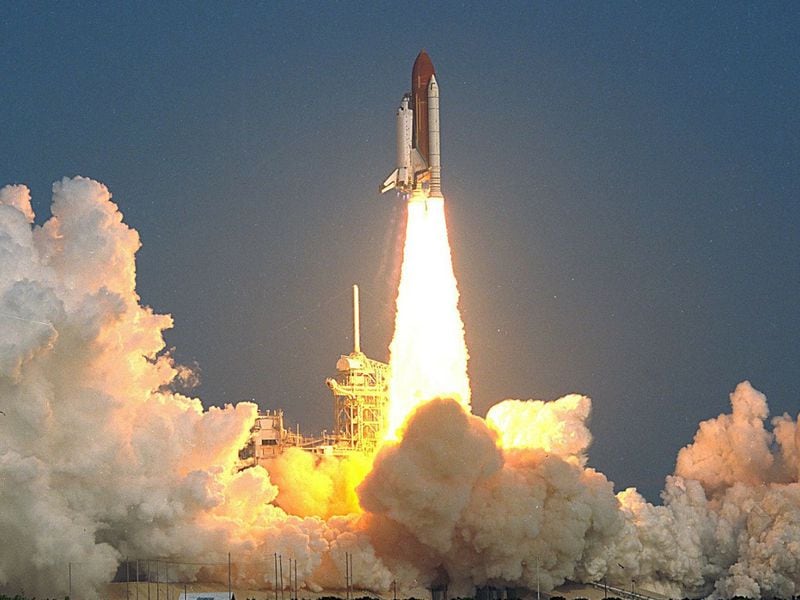Ethereum’s Shanghai Upgrade Spurs Institutional Investment Into Staking
Featured SpeakerJenny Johnson
President and CEOFranklin Templeton

Jenny will discuss developing crypto-linked investment products in a bear market, the mood among her clients and her lon…
:format(jpg)/www.coindesk.com/resizer/imb09KsNh9afdgQ4P24gQvq559Y=/arc-photo-coindesk/arc2-prod/public/DMIIPXHVZFBCPMOBTSEJ2YYG6U.png)
Krisztian Sandor is a reporter on the U.S. markets team focusing on stablecoins and institutional investment. He holds BTC and ETH.
Featured SpeakerJenny Johnson
President and CEOFranklin Templeton

Jenny will discuss developing crypto-linked investment products in a bear market, the mood among her clients and her lon…
Early signs show that Ethereum’s seamless Shanghai upgrade has spurred institutional investors’ interest in staking.
Top institutional-grade ether (ETH) staking service providers have already recorded about three times larger inflows in April compared to all of last month, Michiel Milanovic, analyst of Ethereum blockchain developer firm ConsenSys, told CoinDesk. Some 80% of the inflows happened after the Shanghai upgrade went live on April 12, he added.
Ethereum’s highly anticipated tech update, often referred to as the Shanghai or Shapella upgrade, starting April 12 enabled withdrawals of some 18 million tokens, worth $35 billion, previously locked up in staking contracts. After the upgrade, ETH’s price rallied to $2,100, its highest level in 11 months, defying earlier concerns the unlocking could lead to significant selling pressure and a price crash. The token recently has dropped below $1,900, aligning with a broader crypto market decline.
Allowing withdrawals also reduced the liquidity risk associated with locking up ETH for staking, which has kept some investors at bay before. “We expect this to naturally increase staking rates after the initial drawdown of ETH from long-term validators,” Milanovic said.
According to a survey by Kiln, an institutional-grade staking service provider, 68% of investors said they intend to start staking or increase their staked amount after Shanghai. The survey was conducted in February, before the Shanghai upgrade.
Thomas de Phuoc, Kiln’s co-founder and chief operating officer, said the firm experienced a fresh wave of interest in staking, even from traditional finance (TradFi) firms.
“Our sales team noted 60% more deals in the pipeline than at the same time last year, including from traditional institutions,” Phuoc said. “We are discussing at the moment with some brokerage firms, investment banking services holding companies in the U.S. or in Europe.”
Kiln has recorded $47 million (24,640 ETH) of new deposits since the Shanghai upgrade, according to a Dune dashboard by crypto venture fund Dragonfly’s analyst.
Rival platform Staked.us booked $111 million (58,592 ETH) in inflows, more than double the $51 million (26,667 ETH) of staking rewards withdrawn, per Dune data.
Still, it is early to draw definite conclusions, Milanovic noted, because not all staking providers have enabled withdrawals immediately.
DISCLOSURE
Please note that our
privacy policy,
terms of use,
cookies,
and
do not sell my personal information
has been updated
.
The leader in news and information on cryptocurrency, digital assets and the future of money, CoinDesk is a media outlet that strives for the highest journalistic standards and abides by a
strict set of editorial policies.
CoinDesk is an independent operating subsidiary of
Digital Currency Group,
which invests in
cryptocurrencies
and blockchain
startups.
As part of their compensation, certain CoinDesk employees, including editorial employees, may receive exposure to DCG equity in the form of
stock appreciation rights,
which vest over a multi-year period. CoinDesk journalists are not allowed to purchase stock outright in DCG
.
:format(jpg)/www.coindesk.com/resizer/imb09KsNh9afdgQ4P24gQvq559Y=/arc-photo-coindesk/arc2-prod/public/DMIIPXHVZFBCPMOBTSEJ2YYG6U.png)
Krisztian Sandor is a reporter on the U.S. markets team focusing on stablecoins and institutional investment. He holds BTC and ETH.
Learn more about Consensus 2023, CoinDesk’s longest-running and most influential event that brings together all sides of crypto, blockchain and Web3. Head to consensus.coindesk.com to register and buy your pass now.
:format(jpg)/www.coindesk.com/resizer/imb09KsNh9afdgQ4P24gQvq559Y=/arc-photo-coindesk/arc2-prod/public/DMIIPXHVZFBCPMOBTSEJ2YYG6U.png)
Krisztian Sandor is a reporter on the U.S. markets team focusing on stablecoins and institutional investment. He holds BTC and ETH.









